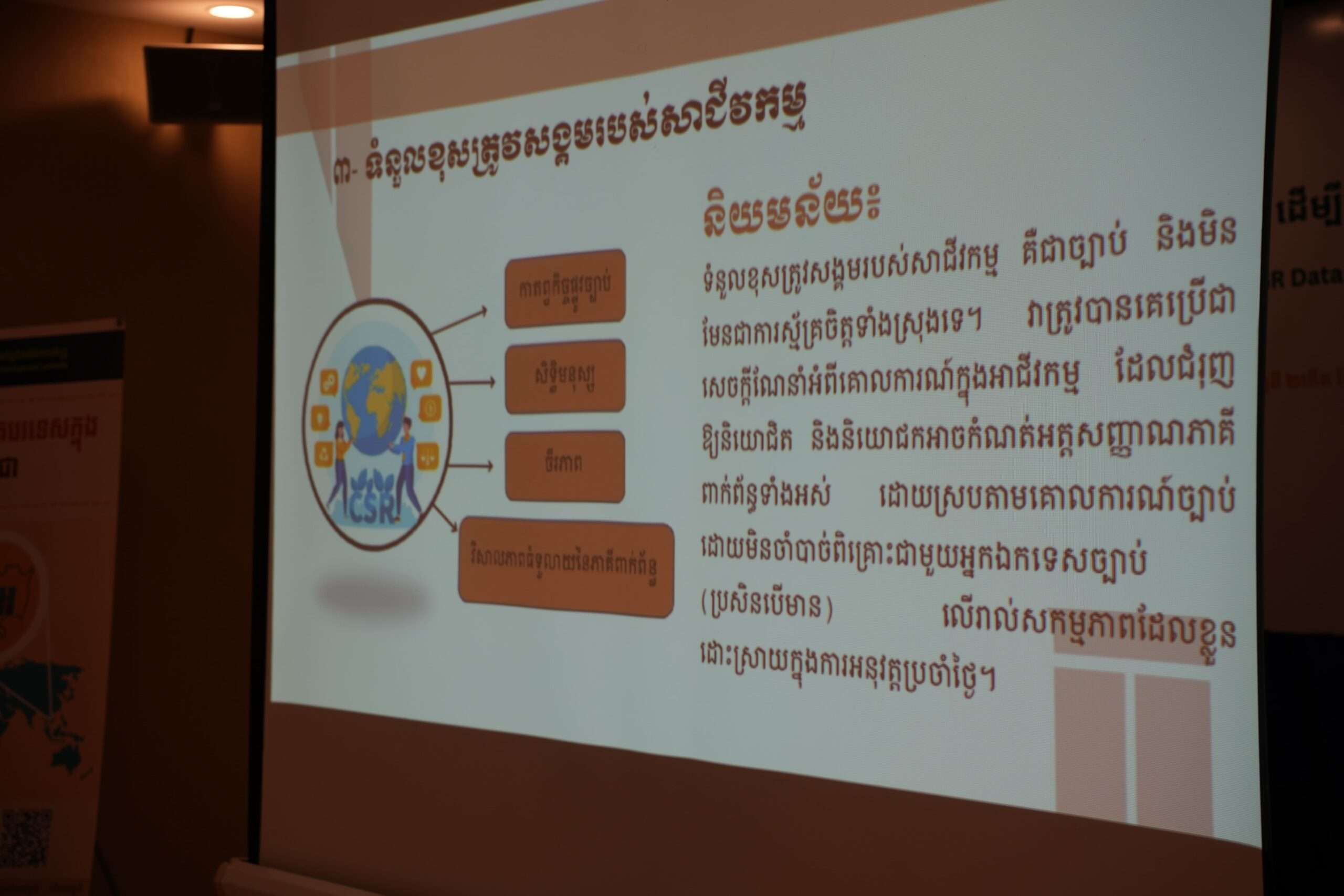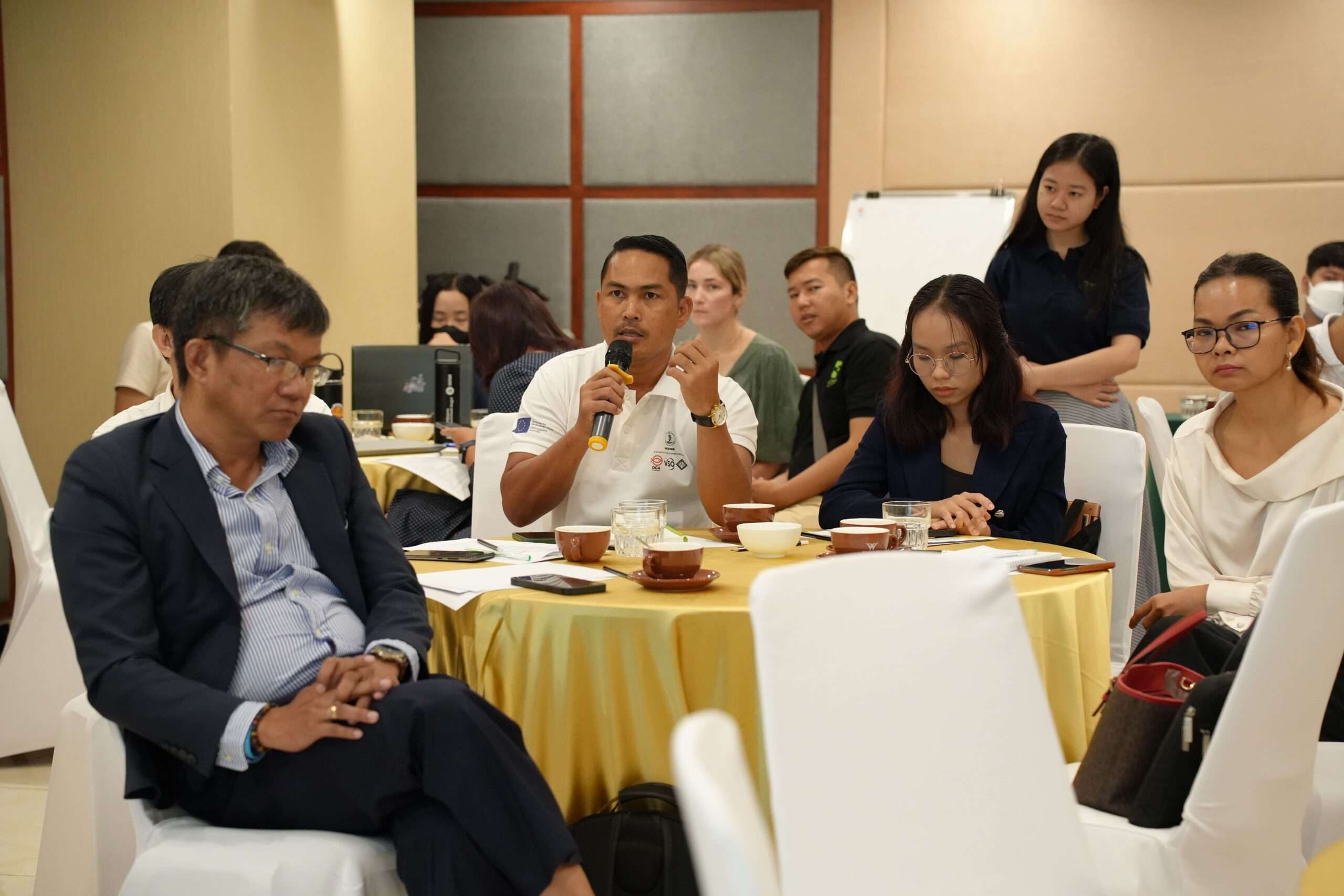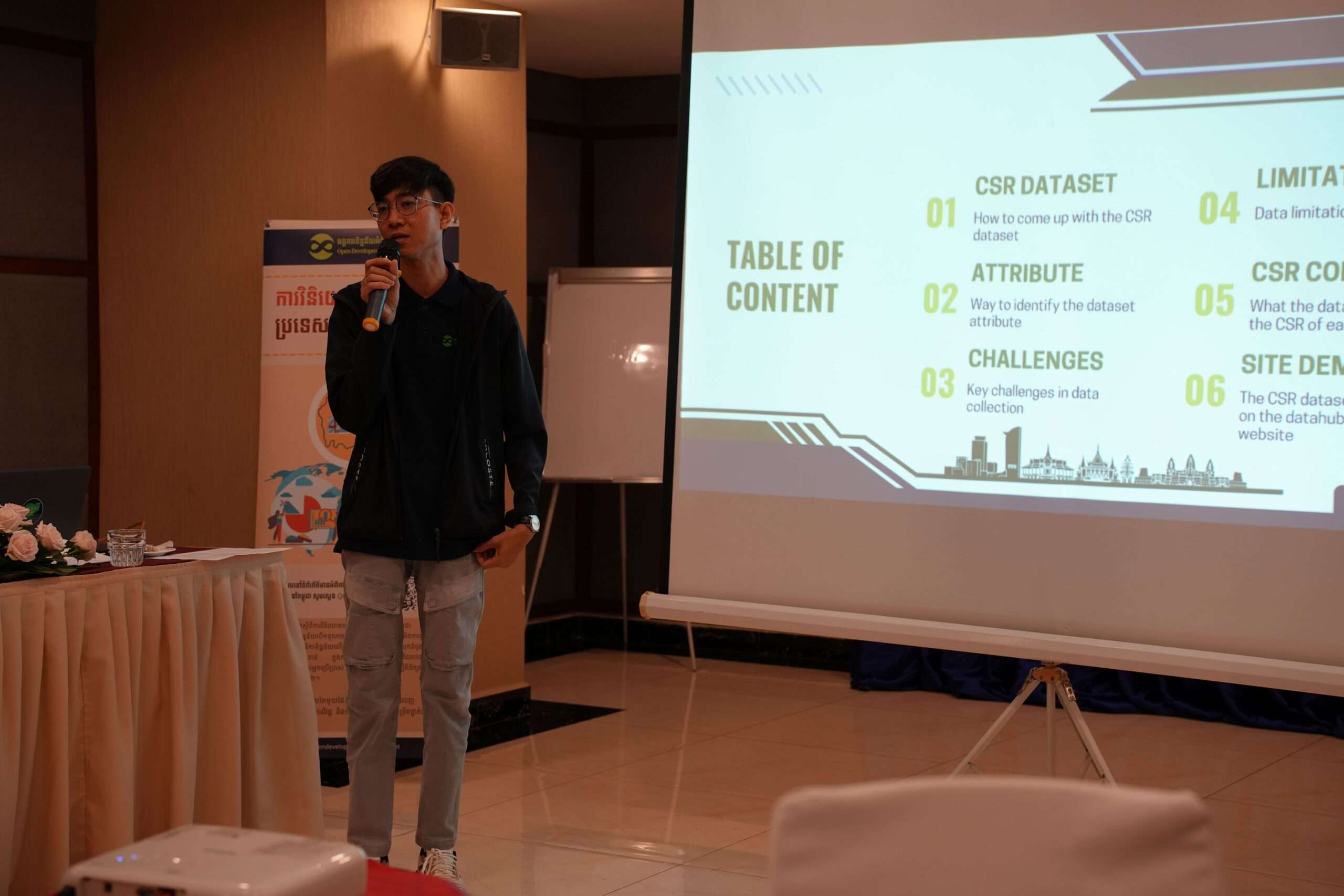A half-day conversation: Corporate Social Responsibility (CSR) and stakeholder engagement
The Open Development Cambodia (ODC) organized a half-day workshop on 9 May 2024 in Phnom Penh, on “Using CSR data to promote transparency in business and stakeholder engagement in Cambodia,” which provided opportunities for people from various domain backgrounds to explore the concept of corporate social responsibility (CSR) in Cambodia and discussed challenges and opportunities. The workshop brought together various stakeholders, including researchers, students, NGOs, and the private sector. The total number of participants is 28 people, with 13 females.

Even though the concept of CSR is widely recognized across the globe, there has always been the question of what CSR means. Is it purely voluntary, or are there some legalities involved? While there might be some debate on the specifics of CSR in Cambodia, the concept is gaining traction, and there is an understanding that it is not purely voluntary. Cambodia doesn’t have specific CSR laws, but there are existing regulations that influence CSR practices, like labor rights and environmental protection. Companies still have legal obligations in these areas.

Many companies, especially small and medium enterprises (SMEs), are unfamiliar with the term, and its implications, and struggle to implement CSR practices due to limited human and financial resources. This absence of disclosure of CSR policy and sustainability reports and lack of transparency put more difficulties in evaluating the extent of social responsibility by a certain firm. One of the most significant concerns that emerged revolved around the issue of CSR quantification. The idea is quite vague, and often companies take actions that do not necessarily benefit society as a whole. For example, while constructing a garden can be considered CSR by a firm, the community at large may not consider it so.
The workshop emphasized the importance of collaboration between stakeholders. NGOs can play a crucial role in supporting community engagement and advocating for responsible business practices. The government can provide frameworks and incentives for CSR implementation.
The workshop also presented an overview of foreign investment data in Cambodia, intending to improve access to information on major foreign investment projects. There is also a new profile page that briefly explains and helps participants build a common ground for understanding responsible business practices and some key concepts of CSR and Environment, Social, and Governance (ESG) in the Cambodian context.
The workshop concluded with calls for further research on CSR measurement and identification of specific indicators. Additionally, there’s a need for clear guidelines on data collection and reporting to ensure the credibility of CSR information. Last but not least, maintaining open communication and collaboration among all stakeholders is vital for promoting responsible business practices in Cambodia.
This workshop served as a valuable starting point for a national conversation on data’s role in promoting responsible business in Cambodia. By working together, businesses, NGOs, and the government can create a more transparent and sustainable business environment in Cambodia.











